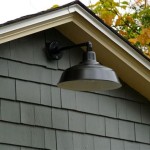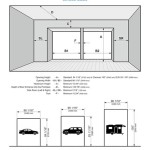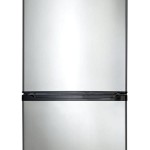How Many Watts Does A Garage Door Opener Use?
Garage door openers are an essential part of many homes, providing convenient and secure access to the garage. They come in various types, each with its own set of features and power requirements. Understanding the wattage of your garage door opener is important for ensuring efficient operation and avoiding potential safety hazards.
The wattage of a garage door opener refers to the amount of electrical power it consumes. It is typically measured in watts (W) and indicates the energy required to operate the opener. Higher wattage openers generally have more powerful motors and can lift heavier doors or operate more quickly.
Factors Affecting Wattage
Several factors can influence the wattage of a garage door opener:
- Door Size: Larger and heavier doors require more powerful motors, resulting in higher wattage openers.
- Motor Type: Chain-driven openers have lower wattage requirements than belt-driven or screw-driven openers.
- Additional Features: Openers with built-in lighting, safety features, or remote controls may have higher wattage ratings.
Typical Wattage Ranges
Common wattage ranges for garage door openers include:
- Small Chain-Driven Openers: 1/2 to 1 horsepower (HP), 150-300 watts
- Medium Chain-Driven Openers: 3/4 to 1 HP, 250-400 watts
- Large Chain-Driven Openers: 1 to 1-1/2 HP, 350-600 watts
- Belt-Driven Openers: 1/2 to 1-1/2 HP, 200-500 watts
- Screw-Driven Openers: 1/2 to 1 HP, 250-400 watts
Calculating Wattage Requirements
To determine the appropriate wattage for your garage door opener, consider the following steps:
- Measure the height and width of your garage door.
- Calculate the square footage of the door by multiplying the height by the width.
- Determine the weight of the door based on the square footage and material type.
- Consult the manufacturer's specifications to find the recommended wattage for a door of that size and weight.
Energy Efficiency
While wattage is an important consideration, energy efficiency is also essential. Choose openers with energy-saving features such as:
- DC Motors: Consume less energy than AC motors
- LED Lighting: Uses less energy than incandescent bulbs
- Standby Power Mode: Reduces energy consumption when the opener is not in use
Safety Considerations
Overloading a garage door opener with a door that is too heavy can be dangerous. It can cause the motor to burn out, overheat, or fail, leading to potential accidents. Ensure the wattage of your opener is adequate for the size and weight of your garage door.
Conclusion
Understanding the wattage of a garage door opener is crucial for selecting the right opener for your needs and ensuring safe and efficient operation. By considering factors such as door size, motor type, and additional features, you can determine the appropriate wattage. Remember to prioritize energy efficiency and safety when choosing a garage door opener.

How Many Amps Does My Garage Door Opener Use Explained Conserve Energy Future

Garage Door Openers Are Always On Greenbuildingadvisor

What Is Normal Garage Door Opener Power Consumption Answered By A Local Expert

How Many Amps Does My Garage Door Opener Use Explained Conserve Energy Future

Garage Door Horsepower How Much It Needed

What Is Normal Garage Door Opener Power Consumption Answered By A Local Expert

Can A Garage Door Opener Be Too Powerful

Led Bulb Guide For Garage Door Opener Advantage Doors

How Many Amps Is A Garage Door Opener Storables

Genie 60 Watt Equivalence A19 Universal Garage Door Opener Led Light Bulb 4000k 2 Pack Gledb2 R2 The Home Depot
Related Posts








